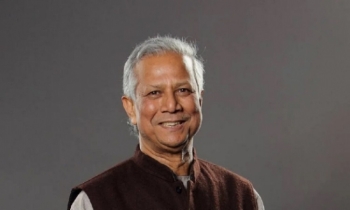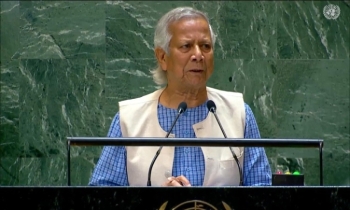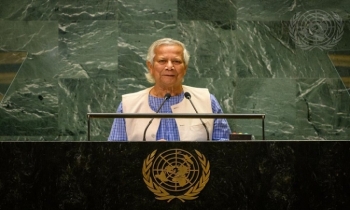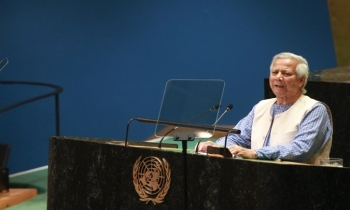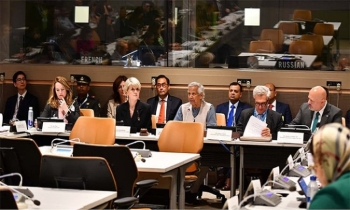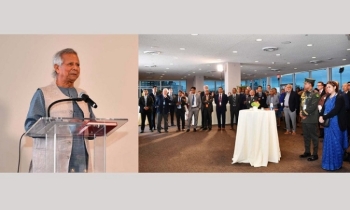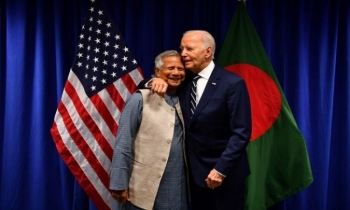Women’s unpaid work equals 40% of GDP: SANEM
BI Report || BusinessInsider

SANEM logo
If given monetary value, women’s contribution in unpaid care work equals around 40 percent of the total GDP of Bangladesh, said analysts at a webinar on Saturday.
They said a stigma is linked with the household services, which overburdens or hinders the employment and educational opportunities of female family members who choose to enter the formal labour sector.
They made the observations at a webinar jointly organised by the South Asian Network on Economic Modeling (SANEM) and Manusher Jonno Foundation (MJF), an NGO.
MA Mannan MP, planning minister, graced the event as the chief guest.
The webinar was moderated by Dr Selim Raihan, professor, Department of Economics, University of Dhaka, and Executive Director of SANEM, while Dr Sayema Haque Bidisha, professor, Department of Economics, University of Dhaka, and Research Director of SANEM delivered the keynote presentation at the event.
A number of analysts spoke on the webinar.
Dr Selim Raihan started the webinar by highlighting the importance of women’s contribution and recognition in policy formulation in achieving larger development goals like the Five-Year-Plan and Sustainable Development Goals.
Shaheen Anam, executive director, Manusher Jonno Foundation (MJF) in her opening remarks emphasised disseminating the research outcomes to the proper authority.
She also said focusing on the care economy can lessen the burden on women and ultimately ensure their participation in paid and formal work.
Having proper policy interventions for this will also have a positive impact on the national GDP, she added.
Dr Sayema Haque Bidisha in her presentation one area which requires policy attention is women’s economic contribution and participation in the labour market.
In the global gender gap report, Bangladesh’s performance in economic participation and opportunity has not changed significantly, she said adding that women’s unaccounted work should be recognized and given dignity to reduce domestic violence, ensuring women’s participation in formal work, implementing SDG goals, etc.
Md Saiful Islam in his speech reiterated the importance of 3R for recognizing unpaid care work. He talked about various ongoing projects of the government which facilitate the participation of women in the labour force.
Baby Rani Karmakar said, “Our failure to recognize unpaid care work has caused the stigma linked to unpaid domestic work. She said the government is emphasizing the capacity building and training of women along with building an image in the family. She appreciated the establishment of Kishori Club to build a positive mentality. She also emphasised the holistic approach to the issue.”
Dr Sheikh Muslima Moon said promoting and reaching out to people so that people can avail all the opportunities created.
Women’s income gets raised by 2.5 to 3 times if unpaid care work is estimated along with the paid work, said Dr Fahmida Khatun.
She also stressed the exemplary and timely data collection on women’s participation in unpaid care work.
Banasree Mitra from Manusher Jonno Foundation said emphasised the importance of valuing unpaid care work not as a woman’s job but as a household job.
At the end of the session, the chief guest of the event, M A Mannan highlighted the importance of a holistic approach as a large part of the population is unaware of the recognition of unpaid care work.
He said that the Prime Minister and the government are trying to take steps strategically to address the issues.
He also said initiatives such as mandatory three female members in union level or one women vice chairman in upazila level, 60 percent of the employment in primary school reserved for women, etc. steps are already taken.


